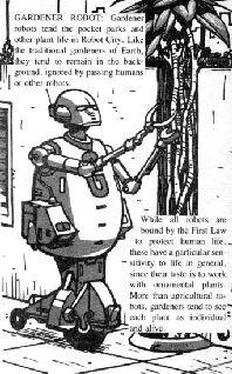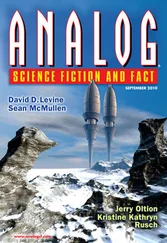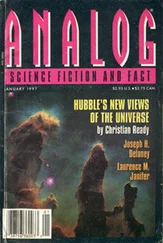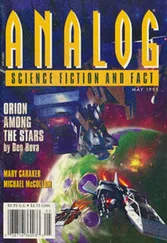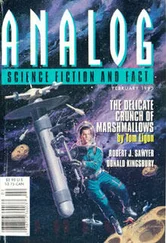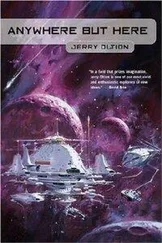Jerry Oltion - Alliance
Здесь есть возможность читать онлайн «Jerry Oltion - Alliance» весь текст электронной книги совершенно бесплатно (целиком полную версию без сокращений). В некоторых случаях можно слушать аудио, скачать через торрент в формате fb2 и присутствует краткое содержание. Год выпуска: 1990, ISBN: 1990, Издательство: Ace Books, Жанр: Фантастика и фэнтези, на английском языке. Описание произведения, (предисловие) а так же отзывы посетителей доступны на портале библиотеки ЛибКат.
- Название:Alliance
- Автор:
- Издательство:Ace Books
- Жанр:
- Год:1990
- ISBN:ISBN: 0-441-73130-9
- Рейтинг книги:3 / 5. Голосов: 1
-
Избранное:Добавить в избранное
- Отзывы:
-
Ваша оценка:
- 60
- 1
- 2
- 3
- 4
- 5
Alliance: краткое содержание, описание и аннотация
Предлагаем к чтению аннотацию, описание, краткое содержание или предисловие (зависит от того, что написал сам автор книги «Alliance»). Если вы не нашли необходимую информацию о книге — напишите в комментариях, мы постараемся отыскать её.
Alliance — читать онлайн бесплатно полную книгу (весь текст) целиком
Ниже представлен текст книги, разбитый по страницам. Система сохранения места последней прочитанной страницы, позволяет с удобством читать онлайн бесплатно книгу «Alliance», без необходимости каждый раз заново искать на чём Вы остановились. Поставьте закладку, и сможете в любой момент перейти на страницу, на которой закончили чтение.
Интервал:
Закладка:
“A reasonable answer. And you, the other robot. Your name?”
“Plato.”
“Plato. What is your answer to the same question?”
“It must, of course, be the same answer.”
A tiny flame shot out from the darkness of Synapo’s face. Sarco said, “Why must it be?”
“It is the correct answer.”
“Then apply that answer to the discussion at hand!”
Plato looked at Sarco, then shifted its eyes to look helplessly at Derec. “I must disagree with a correct answer?”
Synapo’s flame winked out. “Of course you must!” he said. “That is the root of philosophical debate. If we all agreed, we could learn nothing.”
Plato tried. He said, “Then I…then argument has no value. It is a pointless waste of energy. The correct answer should be obvious to all.”
“Wrong!”
“Of course it is wrong!” Plato said desperately. “You told me to disagree with a correct answer!”
“That did not mean you had to give an incorrect one. You are not a philosopher. Dr. Avery, these robots are useless to us.”
“Wrong,” said Wohler. “We are useless to you in our present form.”
Synapo jetted flame again, but Sarco jiggled up and down in obvious amusement. “It caught you!” the alien hooted.
Synapo’s eyes shifted to the robot. “I stand corrected. You are useless to us in your present form. Perhaps in another form you would not be useless. Dr. Avery, what else can these robots do?”
“What do you want them to do?” Avery asked in return.
“Philosophize, but that seems too much to ask. Sarco, do you have another suggestion?”
“You know I do,” Sarco replied. His eyes shifted to meet Avery’s. “At our council meeting, I suggested that the robots be used as musicians. It was my thought that each of us could be attended by a personal musician who could play melodies to fit our individual moods.”
“That’s simple,” Avery said. “They can do that without modification.”
“Unlikely,” Sarco said. “Our music consists of modulated hyperwave emissions.”
“Okay, then,” Avery said with a nod, “we’ll need to give them hyperwave transmitters. And you ‘II have to teach them some of your songs.”
“That can be done. Synapo?”
“Very well. My suggestion came to nothing; we’ll see how yours fares. When will the robots be modified?”
“I can have them back to you by tomorrow,” Avery said.
“We will be here.” Synapo backed away, gave a running hop, and was airborne. Sarco followed, and Adam and Eve, who had been silently flanking them all along, also turned to go.
“Wait a minute,” Derec said. “I want to talk to you.”
“What do you wish to say?” the one on the left asked in Adam’s voice.
“Why don’t you come back with us?”
“We do not wish to.”
“Why not? You can have the same deal we made Lucius. Peaceful coexistence while you figure out your definition of human.”
“We are working on that definition with the Ceremyons. In fact, at this point we believe them to be more human than you.”
“Because they don’t ask you to do anything,” Ariel put in.
“You have a clear understanding of the situation,” the robot replied.
Avery shook his head. “Stay with them forever, for all I care. Good riddance. Come on, Wohler, Plato. Let’s see if we can give you two rhythm.”
They could, but that, it seemed, was not enough. It came close, closer than their first attempt to please the aliens, but on the morning of the third day after the trial, Lucius received a message from his counterparts that the aliens wanted to meet with the ‘self-named humans’ one more time.
They took transport booths out to the edge of the spaceport again. Sarco and Synapo were already waiting for them by the time they arrived, along with Adam and Eve and the musician robots as well.
Wohler was still recognizable by his gold color, but that was the only way to tell him from the other three robots. All had taken on the Ceremyon form.
The alien on the right stepped forward and said, “I am Sarco. These robots are not musicians.”
“What’s the problem this timer’ Avery asked with a sigh.
“They are nothing more than elaborate recording and playback devices with the limited ability to improvise on a theme. Inall the time they have been with us, not once has either of them been able to create a completely new piece of music.”
“Well, not quite,” amended Synapo. “They are able to produce random variations, which are new.”
Sarco snorted flame. “I said ‘new piece of music,’ not just new noise.”
“Sarco is a music lover,” Synapo explained. “He is greatly disappointed.”
Avery nodded. “All right. Let’s get one thing straight. Twice now you’ve asked me to give you robots with creative minds. I’ve tried to accommodate you, but I think you’re missing the point. Robots aren’t supposed to be used for creativity. That’s our job. Robots were made for the drudge work, for servants and laborers and all the other tasks that you need to have done in order to keep a society going but that nobody wants to do.”
Sarco said, “Our society exists without such drudge work, as you call it.”
“Then you don’t need robots.”
“Which is precisely what I told you at our first meeting.”
Avery threw up his hands in defeat. “All right. Forget it. We’ll take them off your hands. I was just trying to be helpful.”
The irony of it was, Derec thought, Avery really was trying to be helpful. It was almost as if he wanted to prove to himself that he could still do it. And here the aliens were telling him that the only way he could help was to take his toys and go home.
“May I ask what you intend to do with them?” Synapo asked.
“What does it matter? They won’t bother you anymore.”
“I am curious.”
“All right, since you’re curious; I’ll probably order them to self-destruct.”
Synapo and Sarco exchanged glances. The robots did so as well.
“That would be a great waste;” Synapo said.
“Waste? You just said they weren’t any good to you. With the planet already occupied, they aren’t any good to me, either. If there’s no use for them, then how can it be a waste to get rid of them?”
“They represent a great degree of organization.”
“Who cares? Organization doesn’t mean anything. An apple has more complex organization than a robot. What matters isn’t how sophisticated it is, but how much it costs you to produce. These robots are self-replicating; you can get a whole city from one robot if you’ve got the raw materials, so their cost is effectively zero. That’s how much we lose if we get rid of them: nothing.”
“But the robots lose. You forget, they are intelligent beings. Not creative, granted, but still intelligent. Perhaps too intelligent for the purpose for which you use them, if this is your attitude toward them.”
“They’re machines,” Avery insisted.
“So are we all,” Sarco said. “Biological machines that have become self-aware. And self-replicating as well. Do you maintain that our value is also zero, that we need not be concerned with individual lives, because they are so easy to replace?”
Avery took a deep breath, working up to an explosive protest, but Ariel’s response cut the argument from under him.
“No,” she whispered. “They’re all important.” She turned to Avery, and her voice grew in intensity as she said, “We just went through all this. Didn’t we learn anything from it? Derec and I aborted our own baby because it was going to be born without a brain. Without that, it was just a lump of cells. Doesn’t that tell us something? Doesn’t that tell us the brain is what matters?”
Читать дальшеИнтервал:
Закладка:
Похожие книги на «Alliance»
Представляем Вашему вниманию похожие книги на «Alliance» списком для выбора. Мы отобрали схожую по названию и смыслу литературу в надежде предоставить читателям больше вариантов отыскать новые, интересные, ещё непрочитанные произведения.
Обсуждение, отзывы о книге «Alliance» и просто собственные мнения читателей. Оставьте ваши комментарии, напишите, что Вы думаете о произведении, его смысле или главных героях. Укажите что конкретно понравилось, а что нет, и почему Вы так считаете.
